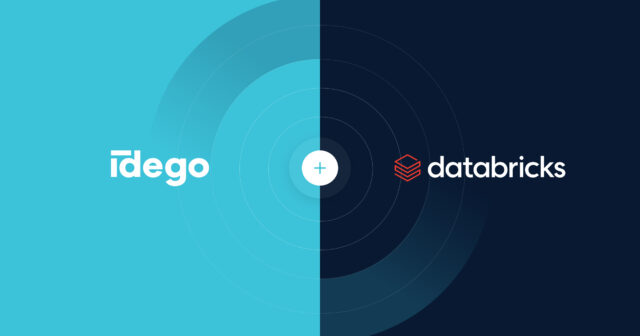
The insurance industry is undergoing a significant transformation as artificial intelligence (AI) and advanced data analytics take hold. These technologies are not only reshaping core processes like underwriting and claims management but are also redefining how insurers assess risk and engage with customers. The result is an industry poised for a new era of efficiency, personalization, and data-driven decision-making.
The Evolution of AI in Insurance
Historically, insurance companies operated with rule-based systems that applied predetermined criteria to processes such as underwriting and claims handling. With the rise of AI—specifically, machine learning (ML) and deep learning—insurers are now able to move beyond these rigid frameworks. AI’s ability to process and analyze vast amounts of structured and unstructured data allows for dynamic decision-making, making processes more accurate and scalable. This shift is fundamentally altering how insurers approach risk evaluation and operational efficiency.
AI’s Core Applications in Insurance
- Underwriting and Risk Assessment: AI is revolutionizing underwriting by allowing insurers to integrate non-traditional data sources, such as social media and IoT sensor data, with historical data. This enables more granular risk assessment and pricing models that reflect real-time insights, leading to enhanced precision in policy pricing and risk mitigation strategies.
- Claims Management: AI is transforming claims processing, reducing friction through automation and more sophisticated fraud detection. The use of AI-driven analytics enables insurers to assess claims in near real-time, identify patterns of fraudulent behavior, and even develop personalized insurance offerings, such as usage-based policies. By streamlining these processes, insurers are able to offer faster, more efficient service to policyholders while reducing costs.
- Customer Engagement and Personalization: AI-powered customer analytics is providing insurers with the tools to engage with clients in more meaningful ways. By leveraging sentiment analysis and predictive customer behavior models, insurers can tailor communications, predict customer needs, and optimize touchpoints throughout the customer journey. This level of personalization not only enhances the customer experience but also increases loyalty and retention.
Future Trends: Moving from Reactive to Predictive Models
The future of insurance is set to be characterized by a fundamental shift in how companies approach risk management. By 2030, AI-driven tools are expected to shift the industry from a reactive “detect and repair” model to a predictive “predict and prevent” framework. This will allow insurers to anticipate risks before they materialize, enabling more proactive customer service and risk mitigation strategies.
Achieving this transformation, however, will require substantial changes in insurers’ operations. Investment in AI technologies, scalable data infrastructures, and a workforce adept in AI and analytics will be key enablers of this shift. Additionally, insurers must revisit traditional business models to align with a future prioritising data-driven insights and proactive risk management.
Addressing the Challenges of AI Adoption
Despite its promise, AI adoption in insurance is not without challenges. Data privacy concerns are front and centre, particularly as insurers access more personal data. Moreover, there are ethical considerations regarding transparency and the fairness of AI-driven decision-making processes. Insurers must also navigate the growing threat of cyber risks associated with the increased digitization of operations. Successfully addressing these challenges will require a focus on robust regulatory compliance, the development of ethical AI frameworks, and enhanced cybersecurity measures.
Strategic Priorities for Insurers
As insurers integrate AI into their core operations, success will depend on several strategic priorities:
- Workforce transformation: Upskilling employees to work effectively alongside AI technologies and fostering a culture that embraces data-driven decision-making.
- Building robust technology infrastructure: Developing platforms that can scale AI solutions efficiently across the enterprise.
- Ensuring ethical AI deployment: Establishing transparent and ethical governance models to ensure compliance with regulatory standards and maintain customer trust.
In this new AI-driven landscape, the ability of insurers to harness the power of data and predictive technologies will ultimately determine their competitiveness. Insurers that strategically invest in AI, while navigating the accompanying ethical and operational challenges, will be well-positioned to deliver superior customer experiences and drive long-term growth in an increasingly digital world.
Sources:
[1] https://www.swissre.com/risk-knowledge/advancing-societal-benefits-digitalisation/evolution-of-ai-in-insurance-industry.html
[2] https://www.mckinsey.com/industries/financial-services/our-insights/insurance-2030-the-impact-of-ai-on-the-future-of-insurance
[3] https://www.snowflake.com/en/blog/16-ways-insurance-companies-can-use-data-ai/
[4] https://www.insuranceeurope.eu/publications/2608/artificial-intelligence-ai-in-the-insurance-sector/
[5] https://commercial.allianz.com/news-and-insights/expert-risk-articles/AI.html
[6] https://assets.kpmg.com/content/dam/kpmg/cn/pdf/en/2023/11/artificial-intelligence-in-the-insurance-industry.pdf










 Idego • Feb 01
Idego • Feb 01